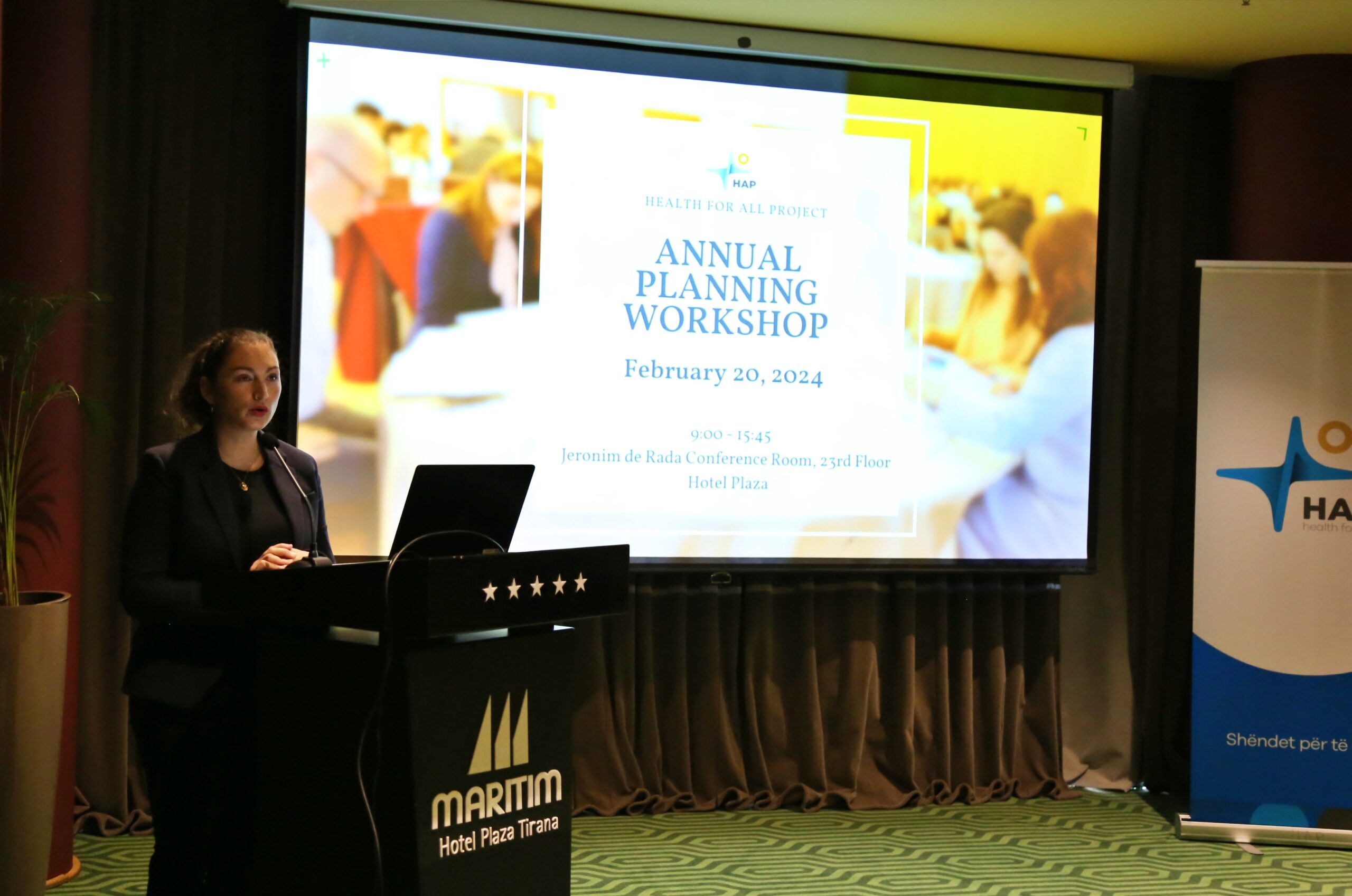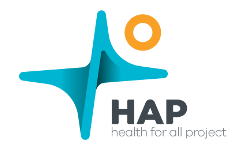
Representatives and stakeholders from the Health for All Project (HAP) convened for the Annual Planning Workshop on February 20, 2024. Held in accordance with the project’s approved document and the Ministry of Health and Social Protection’s (MoHSP) short-term plan, the workshop aimed to align priorities and activities for the upcoming year, April 1st, 2024 to March 31, 2025
The workshop kicked off with welcome speeches by Ms. Sabine Piccard of the Swiss Agency for Development and Cooperation and Ms. Mira Rakacolli, deputy Minister of Health. Following were important presentations by Mr. Besim Nuri, HAP’s Project Manager, who laid out HAP’s strategic priorities for 2024-2025 and Mr. Kaspar Wyss, HAP’s Project Director, who elaborated on the annual work plan focusing on the scale-up of home care services.
Open discussions ensued focusing on key themes such as strategies and approaches to speed up the process of scaling up the services introduced by HAP, practical measures to make possible the implementation of the “cascade approach” for the implementation of nurse training on a larger scale, and the introduction of home health care into the basic package of services with a view to improving accessibility and inclusivity in PHC.
The workshop format foresees the use of working groups as a way of generating proposals for upcoming project activities in alignment with the project document and MoHSP’s annual priorities. Three groups were set up each focusing on specific project outputs including advancing updated models of PHC and enhancing organizational development for key affiliate institutions, implementing home care services and strengthening the role of civil society organizations (CSOs) and media for advocacy, and scaling up the use of clinical guidelines and protocols for non-communicable disease (NCD) control and improving services for vulnerable populations.
In the plenary session, group work results were presented and discussed, with moderators and rapporteurs facilitating dialogue. Some notable proposals included more support for mental health services, strengthening continuing education capacities, revision of the basic package of primary care to include homecare, use of digital products for nursing procedures training, the development of an application to facilitate clinical decision-making and many more.
At the workshop conclusion, all stakeholders underlined their commitment to advancing healthcare accessibility and quality in Albania.

